Musicarta Pentatonics Workbook
The Major Pentatonic Scale
Scale Practice Patterns
Here's a small selection of pentatonic scale finger exercises specifically to go with 'Ambling Around' - though, in fact, they're good for anyone hoping to be able to play freely.
These exercises will condition your hand to the major pentatonic scale tones. Some might be beyond your abilities right now - just do what you can and don't be discouraged.
'Little and often' is the watchword with exercises like these. Shake out any tension regularly and watch your posture - stay upright and don't be pulled down into the keyboard by your concentration.
The exercises are numbered 'AASPP' - Ambling Around Scale Practice Pattern.
Circular motion
AASPP 1
The main technical requirement in Ambling Around is to pass the right hand thumb under going up and the third or other finger over coming down, smoothly.
This exercise starts in turn on each of the first five pentatonic scale tones and circles both up and down, ensuring the scale tones are all equally weighted.
The back of your hand should be flat. Old-school piano teachers used to balance a heavy coin on the back of pupils' hands to check this (and whack them with a ruler if it fell off!).
And up to speed...
Push yourself with your finger exercises a little. Yes, you do want to get faster and develop a more assured, confident touch ('attack')!
Hanon-type patterns
'Hanon-type' finger exercises creep up the keyboard by omitting a note to edge the hand up or down. Use the fingering on the keyboard as a guide.
AASPP 2
The seven notes in the pattern do not fall into any particularly rhythm, so they must stay even apart from a stress on the first note of each new pattern.
AASPP 3
Now we add the octave to make a nine-note pattern. It is likely to play as 5 + 4 notes, with the stress on the bottom and top notes.
Be strict with yourself as to evenness of tempo and touch.
This pattern doesn't descend satisfactorily, so ascending only.
A right hand 'circling' motion
AASPP 4
Learn just the right hand here. It has a little 'fold' on the way down, putting the stress firmly on the tonic and sixth. The pattern starts on C, F, G, and top C.
Beginners can consider the rest of this module optional.
With left hand sixth chord arpeggio
The pentatonic scale is known for being 'practically music already', so it's natural to move into free improvisation textures.
AASPP 5
Here, the left hand plays the major pentatonic scale minus the second - the notes (arpeggio) of the sixth chord (triad plus sixth).
Practice the left hand on its own first, using the 5-4-2-1-2 fingering indicated. This is a stock bass line you will want to know anyway.
As the right hand circles across the rhythm, the hands naturally come to rest on the middle C (F, G, C). Let this obvious rhythmic destination pull you through the sequence.
Just making those notes keep coming on time is a major achievement!
With left hand major pentatonic scale
AASPP 6
Here's the same thing with the left hand playing the full major pentatonic scale. You need dabs of pedal - and to get out of the way quickly - to pull this one off.
Advanced! Don't expect to play this right first time. Just see if you can 'keep going regardless'. Order emerges from chaos, like a huge steam liner emerging from a bank of fog.
|
OUT NOW! |
THE MUSICARTA BEAT & RHYTHM WORKBOOK At last! An effective approach to keyboard rhythm & syncopation skills. Learn more! |
ONLY $24.95! |
|
THE MUSICARTA PENTATONICS WORKBOOK video course Home/Index pages The Pentatonic Scales
Practice Patterns
Melody Work and
Playing by Ear
Pentatonic Riffs
and Diaries - Minor Pentatonic Major Pentatonic
Chromatic Minor
Chromatic Major
Pre-video Pages
Pentatonics videos
Archive Pages
|
The MusicartaA methodical approach to keyboard syncopation for
|
PUBLICATIONS
exciting keyboard
creativity courses
CHORDS 101
WORKBOOK

~HANON~
video course

Musicarta
Patreon
PENTATONICS
WORKBOOK
video course

Creative Keyboard
video course

BEAT AND RHYTHM
WORKBOOK
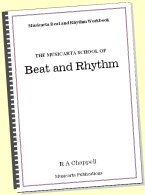
- Volume 1 -

12-BAR PIANO
STYLES WORKBOOK
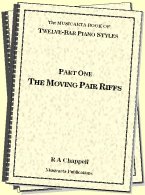
MUSICARTA MODES
WORKBOOK
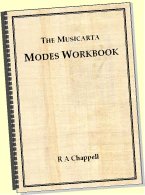
PIANO STYLE
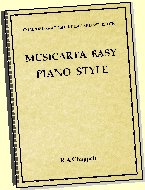
CANON PROJECT
video course
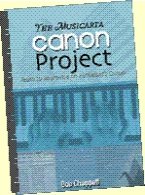
VARIATIONS
video course
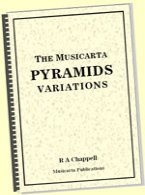
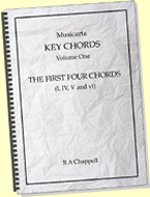
- Piano Solo -
video course

- Piano Solo -


YouTube playlists





 THE LOGO
THE LOGO
